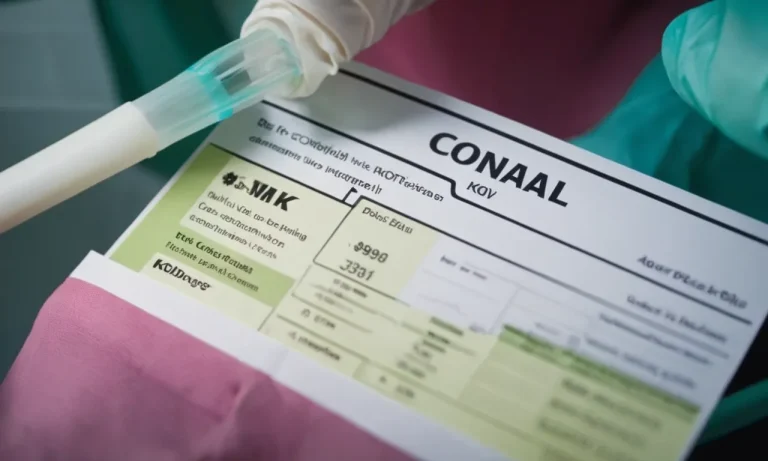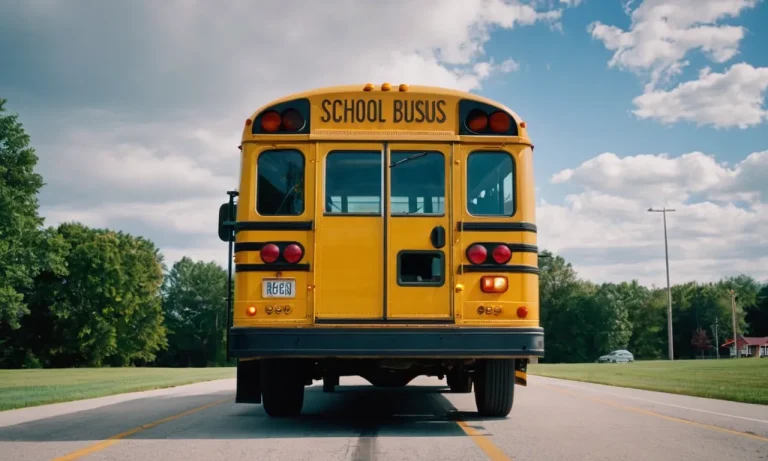Failing a state test in school can be a daunting experience for students, leaving them with a sense of uncertainty and anxiety about their academic future. These high-stakes assessments are designed to measure a student’s proficiency in core subjects and often serve as a gateway to advancement or graduation.
If you’re short on time, here’s a quick answer to your question: The consequences of failing a state test in school can vary depending on the state, grade level, and specific test, but they may include remedial instruction, retaking the test, grade retention, or even being denied a high school diploma.
In this comprehensive article, we will delve into the potential outcomes of failing a state test, exploring the different scenarios and implications across various grade levels. We will also provide insights into the remediation process, strategies for test preparation, and the overall impact on a student’s academic journey.
Understanding State Tests
What are state tests?
State tests, also known as standardized assessments or achievement tests, are examinations administered by state education departments to evaluate students’ proficiency in various academic subjects. These tests are designed to measure how well students have mastered the state’s educational standards and curriculum.
They serve as a benchmark for assessing the performance of students, teachers, schools, and districts across the state.
Purpose and importance of state tests
The primary purpose of state tests is to ensure that all students receive a high-quality education and meet the state’s academic standards. These tests provide valuable data that can be used to identify areas where students may need additional support or where curriculum adjustments may be necessary.
The results also help policymakers and educators make informed decisions about resource allocation, instructional strategies, and educational policies.
Furthermore, state test scores are often used as a measure of school and district accountability. Schools and districts with consistently low test scores may face interventions or consequences, while those with high scores may receive recognition or rewards.
This accountability system aims to incentivize continuous improvement in educational outcomes. According to the National Assessment of Educational Progress (NAEP), standardized test scores have been steadily improving in many states over the past decade, indicating the effectiveness of these assessments in driving educational progress.
Types of state tests (e.g., standardized tests, end-of-course exams)
There are various types of state tests, including:
- Standardized tests: These are the most common type of state tests, designed to assess students’ knowledge and skills in core subjects like reading, math, and science. Examples include the Smarter Balanced Assessment Consortium (SBAC) and the Partnership for Assessment of Readiness for College and Careers (PARCC).
- End-of-course exams: These tests are administered at the end of a specific course, such as algebra or biology, to evaluate students’ mastery of the subject matter. They are often used as a component of a student’s final grade or as a graduation requirement.
- English language proficiency assessments: These tests are designed to measure the English language skills of students whose first language is not English. They help identify students who may need additional support in developing their English language proficiency.
Regardless of the type, state tests play a crucial role in evaluating the effectiveness of educational programs and ensuring that students are receiving a quality education that prepares them for future success.
While the stakes may be high for students, teachers, and schools, these assessments are essential tools for driving continuous improvement and ensuring accountability in the education system. 😊
Consequences of Failing a State Test
Standardized tests are a crucial part of the educational system, and failing them can have significant consequences for students. The repercussions of failing a state test vary depending on the grade level, but they all aim to ensure that students meet the required academic standards.
Let’s explore the potential consequences at different stages of education.
Elementary school (e.g., grade retention, remedial instruction)
In elementary school, failing a state test can result in grade retention or being held back a year. This decision is often made to provide students with additional time and support to master the necessary skills before progressing to the next grade level.
According to the National Center for Education Statistics, approximately 2.6% of public school students were retained in the 2018-19 school year. Additionally, students may be required to attend remedial instruction programs or summer school to receive targeted assistance in their areas of weakness.
- Grade retention can have emotional and social impacts on students, so it’s often used as a last resort.
- Remedial instruction and summer school provide extra support without the need for retention.
Middle school (e.g., summer school, retaking the test)
In middle school, the consequences of failing a state test may include mandatory summer school attendance or retaking the test until a passing score is achieved. According to a study by the American Institutes for Research, students can lose up to 25-30% of their school-year learning over the summer break, making summer school an effective intervention.
Retaking the test allows students another opportunity to demonstrate their knowledge and skills.
- Summer school can be a great way to reinforce learning and prevent the “summer slide.”
- Retaking the test provides a second chance, but it can be stressful for students.
High school (e.g., denied diploma, alternative pathways)
In high school, the stakes are higher, and failing a state test can prevent students from receiving their diplomas. However, many states offer alternative pathways to graduation, such as portfolio assessments, capstone projects, or substitute tests.
According to a report by the Education Commission of the States, as of 2019, 25 states allowed alternative pathways to graduation for students who struggled with standardized tests.
| Consequence | Description |
|---|---|
| Denied diploma | Failing the state test can prevent students from receiving their high school diploma, which can limit their future opportunities. |
| Alternative pathways | Many states offer alternative ways for students to demonstrate their readiness for graduation, such as portfolio assessments or capstone projects. |
Failing a state test can have significant consequences for students, but it’s important to remember that these measures are in place to ensure that students are meeting the necessary academic standards.
With the right support and interventions, students can overcome these challenges and continue on their educational journey. Let’s hope for the best and work together to help every student succeed! 😊
Remediation and Support
Failing a state test in school can be a frustrating and concerning experience for students and their families. However, it’s important to remember that there are various remediation and support options available to help students improve their performance and achieve academic success.
Remedial instruction and tutoring options
Many schools offer remedial instruction and tutoring programs specifically designed to assist students who have struggled with state assessments. These programs can provide targeted instruction in the areas where students need the most support, whether it’s reading comprehension, math concepts, or other subject areas.
Qualified teachers and tutors work closely with students to identify their individual strengths and weaknesses, and develop personalized learning plans to address their needs. According to a study by the National Center for Education Statistics, students who participate in remedial education programs demonstrate significant improvements in test scores and overall academic performance.
Test preparation strategies
In addition to remedial instruction, schools often provide students with test preparation strategies to help them better understand the format, content, and expectations of state assessments. These strategies may include practice tests, test-taking tips, and time management techniques.
By familiarizing themselves with the test structure and format, students can feel more confident and prepared on test day. Many educational organizations, such as ACT and College Board, offer free or low-cost test preparation resources and workshops for students and families.
Appealing test scores or seeking accommodations
In some cases, students or their families may choose to appeal test scores or seek accommodations if they believe there were extenuating circumstances or special needs that were not adequately addressed during the testing process.
This could involve submitting documentation and evidence to the school district or state education department to request a review of the test results or to request accommodations for future assessments.
😊 It’s important to follow the proper procedures and deadlines outlined by the relevant educational authorities. Organizations like Understood.org provide valuable information and resources for students and families navigating the process of requesting accommodations.
Remember, failing a state test is not the end of the road. With the right support and resources, students can overcome academic challenges and continue to work towards their educational goals. Don’t hesitate to reach out to your school’s guidance counselors, teachers, or administrators for assistance in exploring remediation and support options.
👏 With determination and a positive mindset, students can bounce back and achieve success!
Long-term Impact and Considerations
Effects on academic progress and future opportunities
Failing a state test in school can have far-reaching consequences on a student’s academic journey and future prospects. These standardized tests are often used as a benchmark for assessing a student’s mastery of essential skills and knowledge.
A poor performance can potentially hinder their ability to advance to the next grade level or meet graduation requirements. According to a study by the Education Commission of the States, states like Florida and Ohio have implemented policies where students must pass certain exams to receive a high school diploma.
Failure to do so can limit their educational and career opportunities, making it crucial to address any learning gaps or challenges promptly.
Emotional and psychological impact on students
The pressure and anxiety surrounding state tests can take a significant toll on a student’s emotional and psychological well-being. The fear of failure, coupled with the high-stakes nature of these assessments, can lead to increased stress levels, diminished self-confidence, and even mental health issues like anxiety and depression.
A study by the American Psychological Association found that test anxiety can negatively impact academic performance, memory retrieval, and overall well-being. It’s essential for educators and parents to prioritize students’ mental health and provide appropriate support systems to help them cope with the demands of these high-stakes tests.
Addressing test anxiety and stress management
To mitigate the negative impacts of failing a state test, it’s crucial to address test anxiety and equip students with effective stress management strategies. Schools can implement mindfulness practices, counseling services, and test-taking workshops to help students develop resilience and coping mechanisms.
Encouraging a growth mindset and fostering a supportive learning environment can also alleviate the pressure associated with these assessments. Additionally, Edutopia recommends techniques like deep breathing exercises, positive self-talk, and visualization to manage test anxiety.
By addressing these concerns proactively, students can approach state tests with greater confidence and a healthier mindset, potentially improving their chances of success. 😊
It’s important to remember that while state tests are crucial milestones, they don’t define a student’s entire academic journey or potential. With the right support system and strategies in place, students can overcome the challenges posed by failing a state test and continue to thrive academically and personally.
👏
Conclusion
Failing a state test in school can have significant consequences for a student’s academic journey, ranging from remedial instruction and grade retention to being denied a high school diploma. However, it is crucial to understand that these outcomes are not set in stone and that there are often opportunities for remediation and support.
By exploring the various scenarios and implications across different grade levels, this article has aimed to provide a comprehensive understanding of what happens when a student fails a state test. It has also highlighted the importance of test preparation strategies, remedial instruction, and seeking accommodations or appealing test scores when necessary.
Ultimately, the key takeaway is that failing a state test should not be viewed as a definitive end, but rather as a learning opportunity and a chance to reassess and refocus efforts. With the right support and determination, students can overcome this challenge and continue on their path to academic success.






